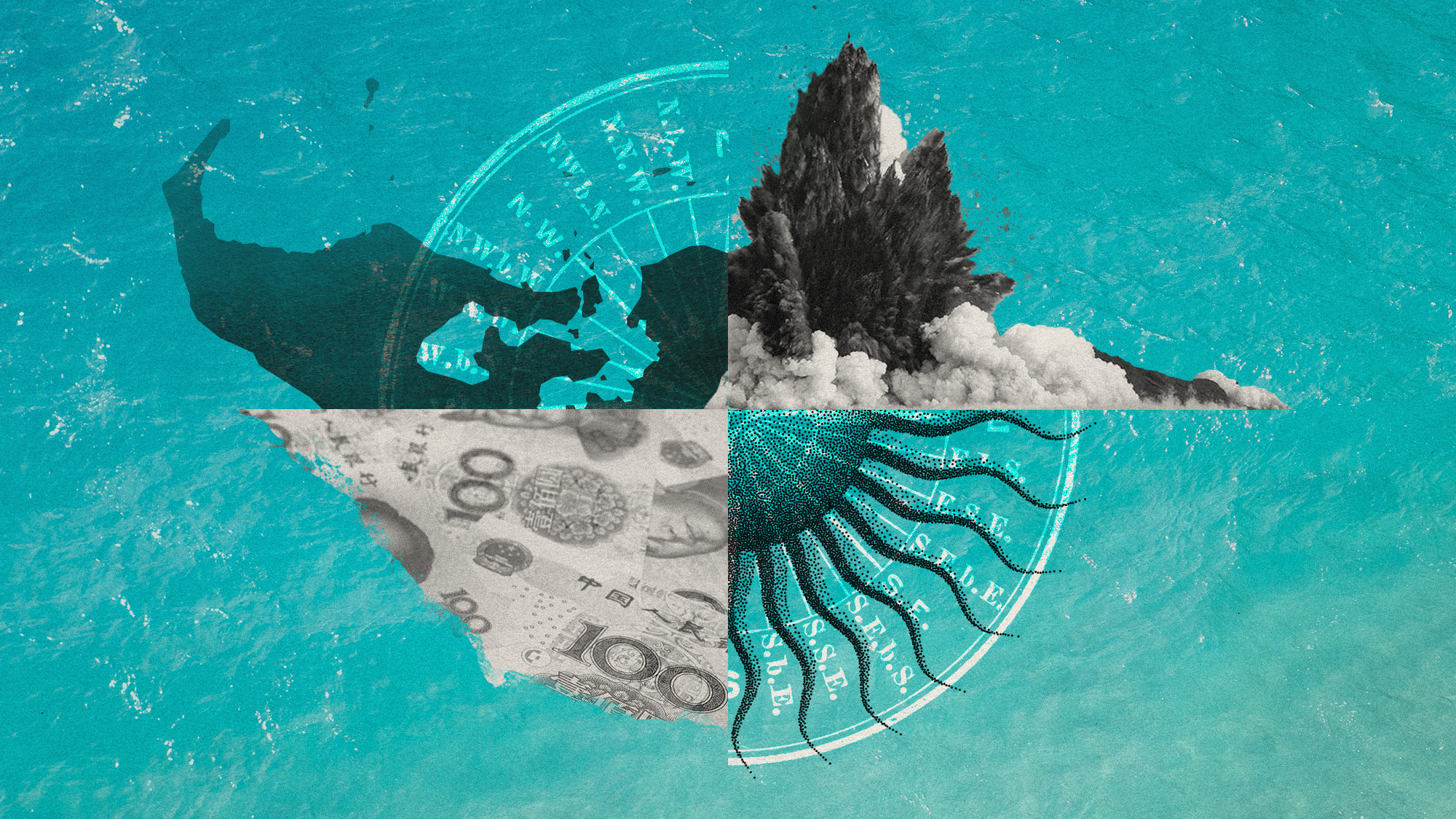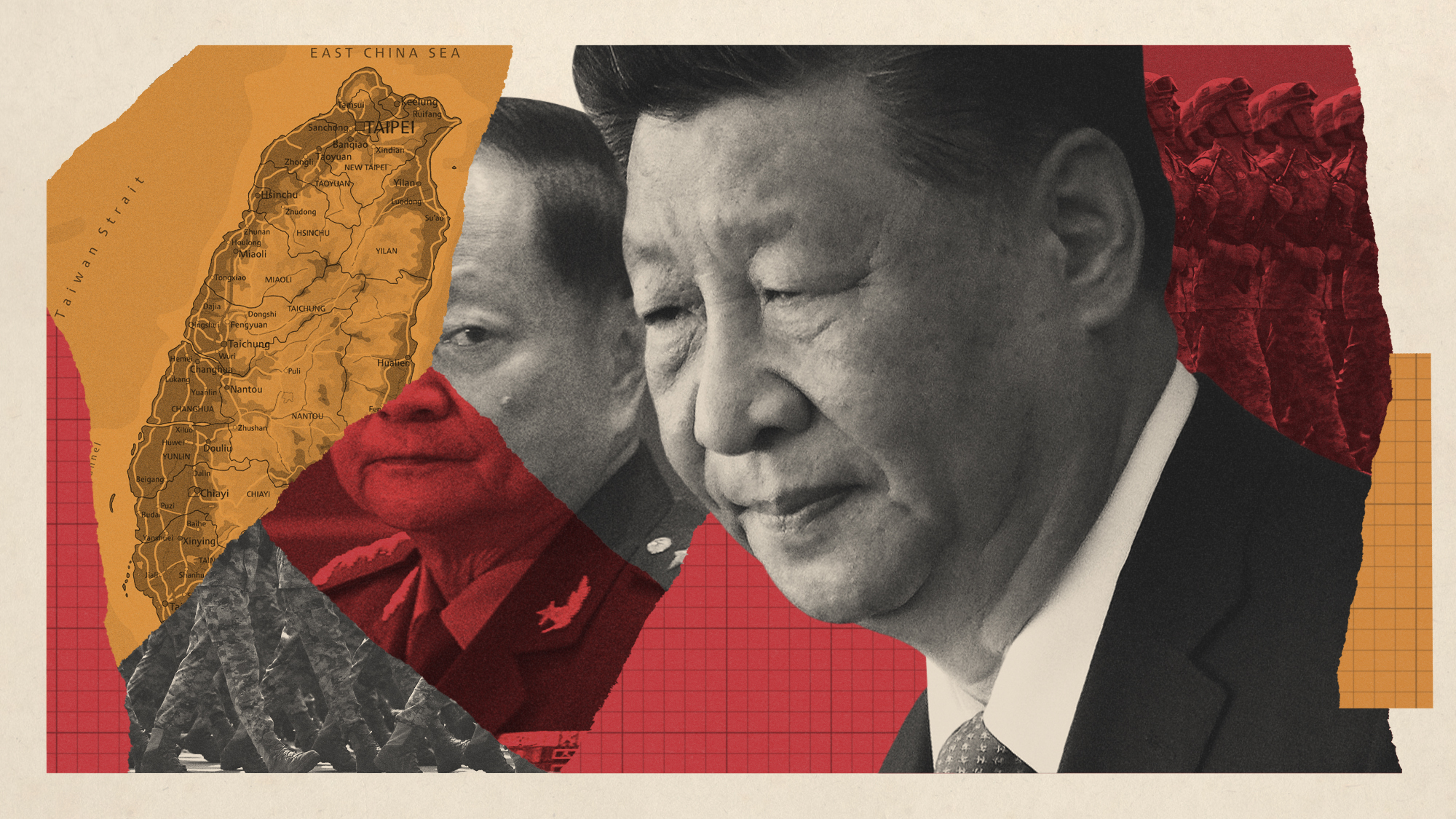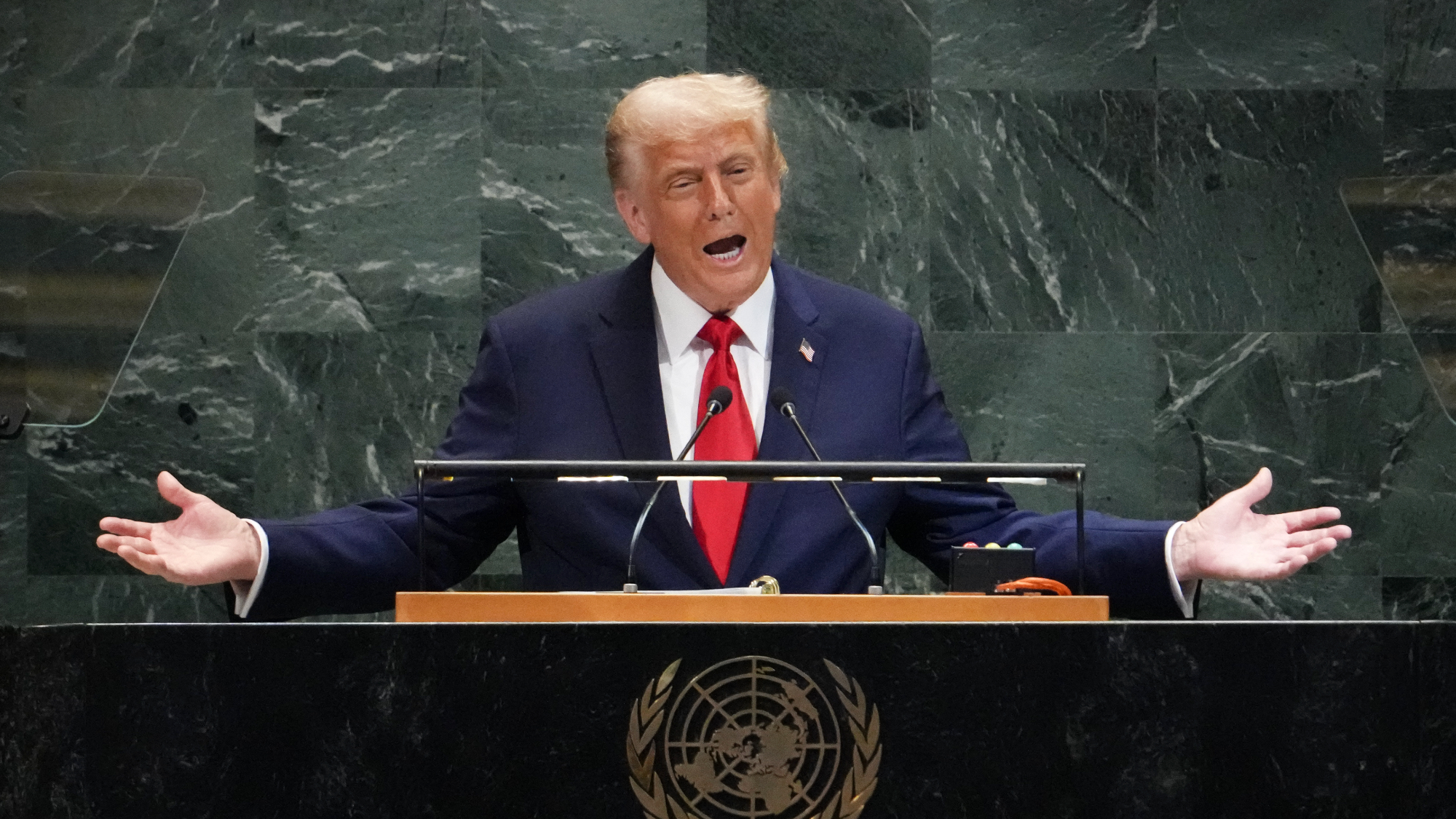The polycrisis facing the Pacific Islands
Leaders will address the region's struggles with climate change, drug trafficking and geopolitical influence during this week's Pacific Islands Forum

A free daily email with the biggest news stories of the day – and the best features from TheWeek.com
You are now subscribed
Your newsletter sign-up was successful
Pacific Island leaders are gathering in Tonga this week to address issues including climate change, international drug trafficking, geopolitical power struggles, and more, amounting to what Fiji's Prime Minister Sitiveni Rabuka called a "polycrisis".
At the 53rd annual Pacific Islands Forum (PIF) Leaders Meeting, which concludes on 30 August, UN Secretary-General Antonio Guterres will join regional leaders amid a "growing sense of urgency as existential threats intensify on several fronts", said Al Jazeera. Recent unrest in New Caledonia, a French overseas territory, has only exacerbated concerns over the region's future.
"If the region is to survive, it really needs something to drive their collective agenda and identity," Sandra Tarte, a regional politics expert at the University of the South Pacific in Fiji, told Al Jazeera.
The Week
Escape your echo chamber. Get the facts behind the news, plus analysis from multiple perspectives.

Sign up for The Week's Free Newsletters
From our morning news briefing to a weekly Good News Newsletter, get the best of The Week delivered directly to your inbox.
From our morning news briefing to a weekly Good News Newsletter, get the best of The Week delivered directly to your inbox.
The 2050 Strategy for a Blue Pacific Continent looks to fill that role. The broad approach was endorsed by PIF attendees in 2022, and leaders hope to thrash out more concrete details at this year's meeting. But some of the proposals on the agenda are likely to be shaped by international influence, yet another dimension of the "polycrisis" flagged by Rabuka.
'It's about control'
"Once overlooked by many Western governments," the Pacific "has become a focus of competition in recent years among the world's largest governments for influence, resources and power", said The Hill. "The Pacific Islands Forum has exploded in importance as a result, drawing diplomatic and civil society observers from across the globe."
The Pacific Islands' strategic location and vulnerability to climate change have made them the source of an "intense rivalry" between China, the United States, and allies like Australia and Japan, said Reuters. According to a report by the Lowy Institute, these countries' competing interests pull the region in "different directions, swamping small bureaucracies", and risk "distracting from local priorities".
The Pacific Policing Initiative (PPI), proposed by Australia, has prompted such expert concerns. The Australian government has touted the initiative as a solution to the problem of increasingly cheaper drugs moving through the Pacific Islands, often from the Americas and Asia, to Australia and New Zealand.
A free daily email with the biggest news stories of the day – and the best features from TheWeek.com
The PPI would "provide training and capacity-building to Pacific island police forces", training officers in Brisbane before stationing them in "regional crime hotspots", said Al Jazeera. But Tarte said the costly initiative would "hugely suck up resources and may not have much benefit on the ground", and is instead aimed at beefing up Australian influence to counter Beijing's own interest in the Pacific. "These projects are often driven by the wrong reasons. It's about access, it's about influence and it's about control."
'It's a trade-off and it's not one that's good'
New Zealand Foreign Minister Winston Peters said last week that the United States, New Zealand and other Western nations have waited too long to act in the Pacific Islands, leaving a "power vacuum" that has swiftly been filled.
Although not mentioning China by name, Peters "decried what he termed the rise of 'chequebook diplomacy' that has swept the Pacific", said The Hill, "a strategy by which China has solidified its influence in recent years". The nation has funded numerous projects in the region, often leaving Pacific Island nations with crippling debts in return.
After civil unrest in 2006 left Tonga's capital Nuku'alofa "devastated", the small nation "had little choice" but to accept the hefty loan offered by Beijing. With that $104 million (£78.7 million) debt owed by 2030 and other loans to account for, the country currently contributes 3.8% of its GDP to Chinese debt repayments, a rate that Lowy researcher Riley Duke called "astronomically high". Samoa is in a similar position, with 2.6% of its GDP paid to China, and Vanuatu pays 1.8%.
Although many international loans, from China and elsewhere, often improve infrastructure and tourism, the repayments also take away from funding for initiatives relating to health and climate resilience.
Pacific countries "have some of the highest costs in the world in terms of climate adaptation needs", Duke told ABC News. "But these are things that have to be deprioritised to deal with the debt. It's a trade-off and it's not one that's good."
-
 How the FCC’s ‘equal time’ rule works
How the FCC’s ‘equal time’ rule worksIn the Spotlight The law is at the heart of the Colbert-CBS conflict
-
 What is the endgame in the DHS shutdown?
What is the endgame in the DHS shutdown?Today’s Big Question Democrats want to rein in ICE’s immigration crackdown
-
 ‘Poor time management isn’t just an inconvenience’
‘Poor time management isn’t just an inconvenience’Instant Opinion Opinion, comment and editorials of the day
-
 Trump’s EPA kills legal basis for federal climate policy
Trump’s EPA kills legal basis for federal climate policySpeed Read The government’s authority to regulate several planet-warming pollutants has been repealed
-
 The UK expands its Hong Kong visa scheme
The UK expands its Hong Kong visa schemeThe Explainer Around 26,000 additional arrivals expected in the UK as government widens eligibility in response to crackdown on rights in former colony
-
 ‘Hong Kong is stable because it has been muzzled’
‘Hong Kong is stable because it has been muzzled’Instant Opinion Opinion, comment and editorials of the day
-
 What do Xi’s military purges mean for Taiwan?
What do Xi’s military purges mean for Taiwan?Today’s Big Question Analysts say China’s leader is still focused on reunification
-
 What is at stake for Starmer in China?
What is at stake for Starmer in China?Today’s Big Question The British PM will have to ‘play it tough’ to achieve ‘substantive’ outcomes, while China looks to draw Britain away from US influence
-
 ‘It’s good for the animals, their humans — and the veterinarians themselves’
‘It’s good for the animals, their humans — and the veterinarians themselves’Instant Opinion Opinion, comment and editorials of the day
-
 Trump pulls US from key climate pact, other bodies
Trump pulls US from key climate pact, other bodiesSpeed Read The White House removed dozens of organizations from US participation
-
 What is China doing in Latin America?
What is China doing in Latin America?Today’s Big Question Beijing offers itself as an alternative to US dominance